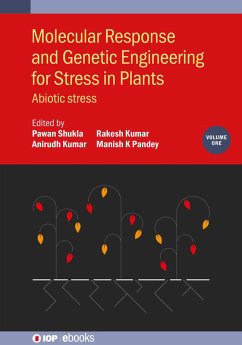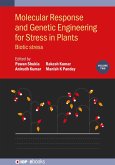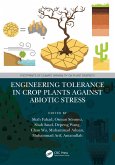Abiotic stresses such as increase in temperature, drought, salinity, heavy metals and waterlogging conditions adversely affect the natural resources and sustainable production of the crop. These challenges necessitate the sustainable increase in crop production through developing improved cultivars possessing enhanced genetic resilience against all odds. An exploration of these challenges and near possible solution to improve yield, this edited book entitled "Molecular Response and Genetic Engineering for Stress in Plants, Volume 1: Abiotic stress" comprehensively and coherently reviews the different abiotic stress response mechanisms in plants with respect to the various aspects of rapidly growing omics techniques like genomics, transcriptomics, proteomics, metabolomics and strategies through genetic engineering and molecular breeding for crop improvement. It provides a detailed examination of how genes and metabolites are modulated in plants in response to various stresses. This edited book provides case studies of several crop plants about how genetic engineering strategies have been used to enhance productivity and resilience. The book explores how the understanding of different abiotic stress can be used to improve the quantitative and qualitative traits of crop plants. The first volume covers the various abiotic stress response mechanisms in plants in the view of climate change and global food security.
Dieser Download kann aus rechtlichen Gründen nur mit Rechnungsadresse in A, D ausgeliefert werden.









